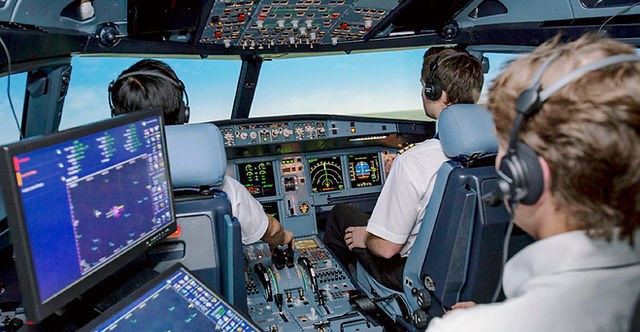For many young dreamers, the allure of the skies and the thrill of aviation are captivating. However, turning that passion into a career often feels like a distant goal. Fortunately, after-school pilot courses provide a pathway for aspiring aviators to begin their journey early. By enrolling in these programs, young students can gain invaluable skills, experience, and knowledge that pave the way towards earning an airplane pilot license and pursuing a rewarding career in aviation. Let’s explore the benefits of starting pilot training early and how it sets the foundation for future success.
Building a Strong Foundation in Aviation
Early Exposure to Aviation ConceptsAfter-school pilot courses offer students early exposure to fundamental aviation concepts. These programs introduce young aviators to the basics of flight theory, aerodynamics, and aircraft systems. By understanding these core principles from a young age, students build a solid foundation that will benefit them as they progress through more advanced training.
Hands-On ExperienceOne of the most significant advantages of starting pilot training early is the opportunity for hands-on experience. Many after-school programs include practical flight training, allowing students to take to the skies under the supervision of certified instructors. This real-world experience not only reinforces theoretical knowledge but also helps students develop essential flying skills and confidence.
Accelerating the Path to an Airplane Pilot License
Accumulating Flight HoursObtaining an airplane pilot license requires a minimum number of flight hours, which can be a significant time commitment. By starting flight training early, students can begin accumulating these hours while still in school. This head start means they can reach the required milestones more quickly and efficiently, potentially obtaining their license sooner than those who start later.
Familiarity with Flight School EnvironmentParticipating in after-school pilot courses familiarizes students with the flight school environment. They become accustomed to the structure of aviation training, the expectations of instructors, and the protocols of flight operations. This familiarity makes the transition to full-time flight school smoother and less daunting
Developing Essential Skills for Success
Time Management and DisciplineBalancing school responsibilities with after-school pilot courses teaches students valuable time management and discipline. They learn to prioritize their commitments, manage their schedules effectively, and maintain a strong work ethic. These skills are crucial not only for aviation but for any professional endeavor.
Enhancing Cognitive and Motor SkillsFlying an aircraft requires sharp cognitive and motor skills. Early flight training helps students develop these abilities through tasks such as navigation, communication, and maneuvering the aircraft. Enhanced hand-eye coordination, spatial awareness, and decision-making skills are direct benefits of early pilot training.
Inspiring Long-Term Commitment and Passion
Sustained Interest in AviationStarting pilot training early helps sustain and nurture a long-term interest in aviation. Students who engage with aviation from a young age are more likely to remain passionate and committed to their goals. This sustained interest drives them to pursue further education and training, ultimately leading to successful careers in aviation.
Building a Network of SupportAfter-school pilot courses provide students with opportunities to connect with like-minded peers and mentors. Building a network of support within the aviation community can be invaluable. Mentors can offer guidance, share experiences, and provide encouragement, while friendships with fellow students create a sense of camaraderie and shared ambition.
Opening Doors to Career Opportunities
Competitive Edge in the Job MarketGraduates of after-school pilot courses often have a competitive edge in the job market. Their early start demonstrates dedication, passion, and a proactive approach to their career goals. Employers recognize the value of candidates who have invested time and effort into their training from a young age.
Versatility and Career FlexibilityEarly pilot training equips students with versatile skills that are applicable in various aviation careers. Whether aspiring to be commercial airline pilots, corporate aviators, or flight instructors, the foundational training gained from after-school courses provides the flexibility to pursue diverse career paths.
Conclusion
Starting pilot training early through after-school courses offers numerous benefits, from building a strong foundation in aviation to accelerating the path to an airplane pilot license. Students who apply to flight schools with aspirations of becoming pilots receive practical experience, acquire the skills and knowledge necessary for their profession, and maintain a lifetime interest in flying. These programs provide opportunity to achieve higher employment and career prospects give an edge in aviation industries.
For the would-be aviators, the Flyscan Academy provides a comprehensive structured training programs for the young flocking dreamers. This makes Flyscan Academy, which avails itself to superior facility, qualified teachers and strong principles, the right place for one to begin his/her flight training early enough so that he/she can be trained well enough to become a professional pilot.
So why wait? Take to the skies and begin your journey with Flyscan Academy today!
